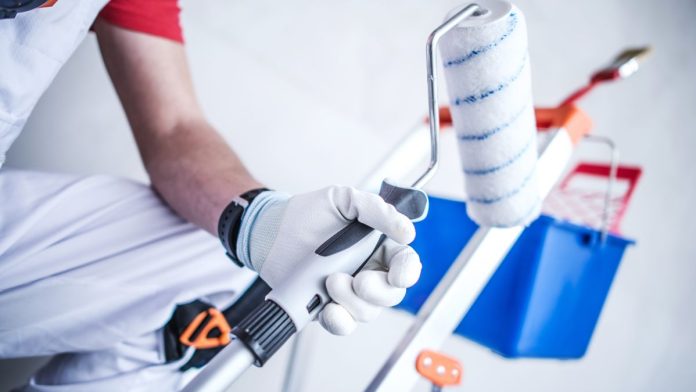Industrial painting is a critical process in the maintenance and preservation of industrial equipment and structures. It extends beyond mere aesthetics, playing a crucial role in protecting materials from corrosion, weather, and wear. This type of painting involves specialized coatings that are designed to withstand harsh industrial environments, ensuring the longevity and safety of the infrastructure. Understanding its importance is key for any industry relying on durable and resilient equipment and facilities.
The Benefits of Industrial Painting
Industrial painting service offers numerous benefits, making it an essential practice in various industries. From enhancing durability to ensuring safety, the advantages of industrial painting are wide-ranging.
- Corrosion Resistance: Industrial paint provides a protective barrier against corrosion, particularly in metal structures exposed to moisture, chemicals, or extreme weather. This protection extends the life of the equipment and reduces the need for frequent replacements, thus saving costs in the long run.
- Increased Durability: High-quality industrial paint can significantly increase the durability of surfaces, making them more resistant to scratches, impacts, and general wear and tear. This enhanced durability is crucial for maintaining the structural integrity of industrial facilities and machinery.
- Improved Safety: Certain industrial paints are formulated to improve safety, such as fire-retardant or non-slip coatings. These paints not only protect the structure but also ensure the safety of the workers, minimizing the risk of accidents.
- Enhanced Aesthetics: While functionality is paramount, industrial painting also improves the appearance of facilities and equipment. A well-maintained and professionally painted industrial site can project a positive image of the company, reflecting its commitment to quality and professionalism.
- Environmental Protection: Modern industrial paints are often formulated to be environmentally friendly, with low VOC (volatile organic compounds) levels. This ensures compliance with environmental regulations and promotes a healthier workspace.
How to Choose the Right Industrial Paint for Your Needs and Applications
Selecting the right industrial paint is crucial for achieving the desired protection and performance. With various types and formulations available, it’s important to consider several factors to make an informed choice.
- Surface Material: Identify the material of the surface to be painted, whether it’s metal, concrete, or wood. Different materials require specific types of paint for effective adhesion and protection.
- Environmental Conditions: Consider the environmental conditions the painted surface will be exposed to, such as extreme temperatures, humidity, or chemical exposure. Paints designed for these conditions will ensure optimal performance and longevity.
- Safety Requirements: If there are specific safety requirements, such as fire resistance or non-slip properties, ensure the paint you choose meets these criteria.
- Aesthetic Considerations: While functionality is key, also consider the aesthetic aspect. Choose a color and finish that align with your facility’s appearance and branding.
- Cost-Effectiveness: Analyze the cost-effectiveness of the paint options. While higher-quality paints might be more expensive upfront, they can be more cost-effective in the long run due to their durability and reduced maintenance requirements.
FAQs
Typically, surfaces like metal structures, machinery, industrial floors, and exterior walls of factories require industrial painting. These surfaces are often exposed to harsh conditions and benefit from the protective properties of industrial coatings.
Industrial painting differs from the regular commercial painting services in its purpose and the products used. It’s specifically designed for durability, corrosion resistance, and withstanding harsh environmental conditions, unlike regular painting which is primarily aesthetic.
Industrial painting prevents corrosion and rust by providing a protective barrier that shields the underlying material from moisture, chemicals, and other corrosive elements. Specialized coatings can also inhibit the chemical reactions that lead to rust and corrosion, thereby prolonging the lifespan of the structure or machinery.
Yes, modern industrial painting can be sustainable. Many industrial paints are now formulated to minimize environmental impact, with low VOC levels and eco-friendly ingredients. These advancements help reduce pollution and contribute to a healthier environment.









